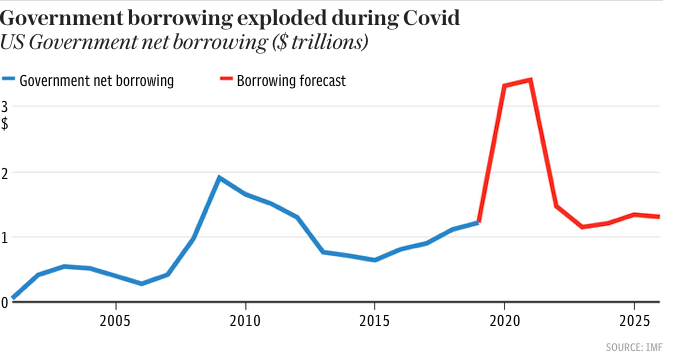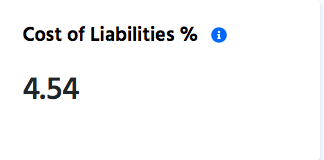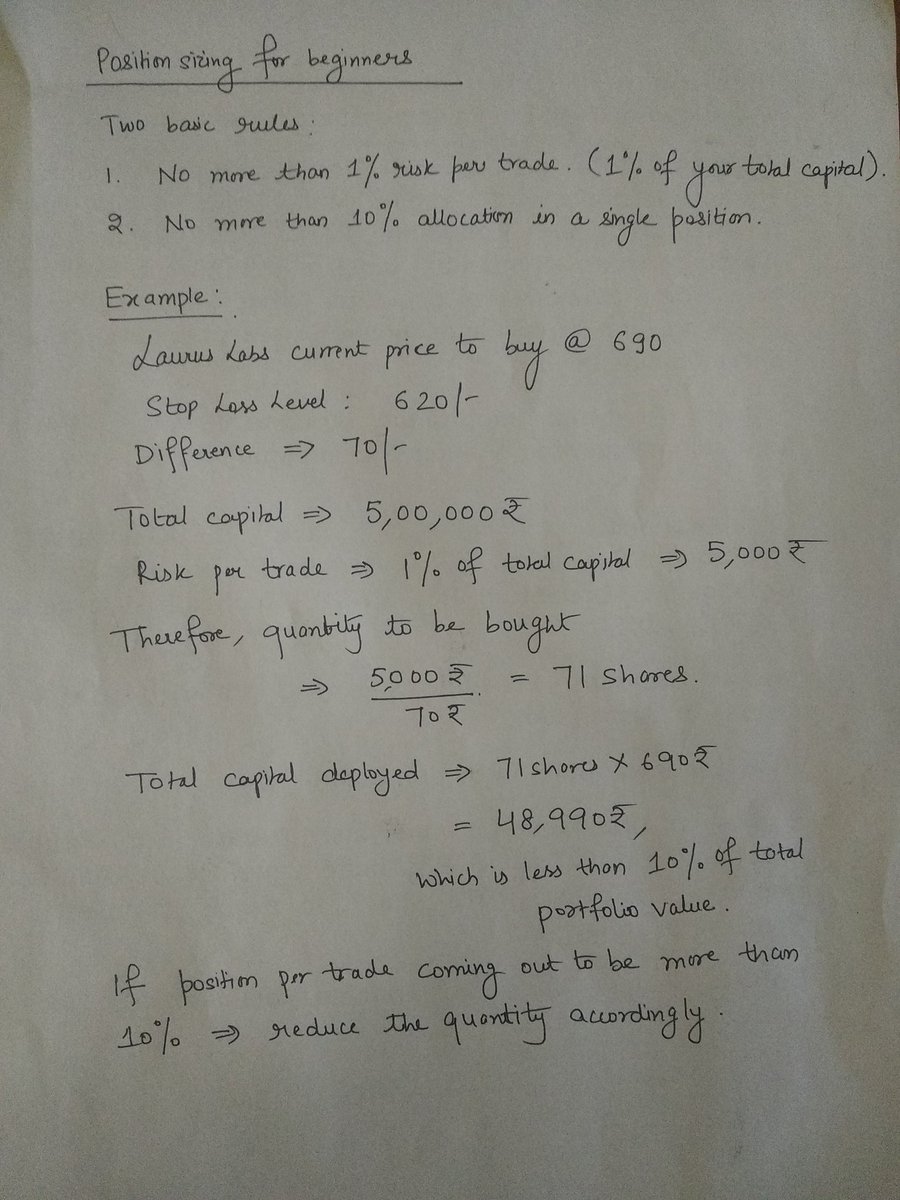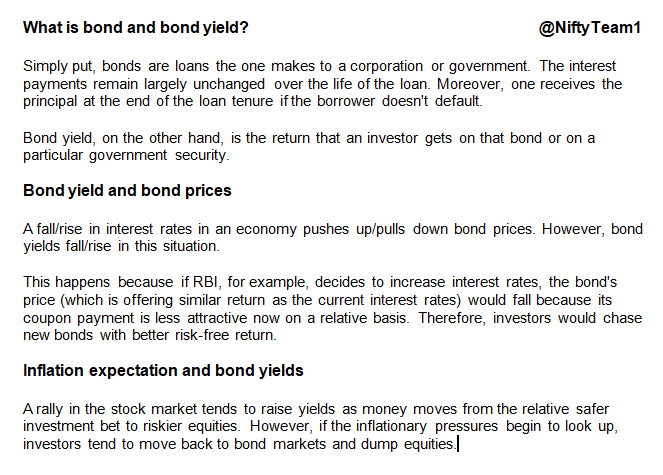And you can also join our Telegram channel for regular updates – https://t.co/Ekz6I8pDGt (2/n)
Personal Finance 101 – My learning’s about investing
This topic is for everyone, whether you manage your money yourself or through your advisor, it will go a long way in managing your finances.
Do re-tweet & help us educate retail investors (1/n)
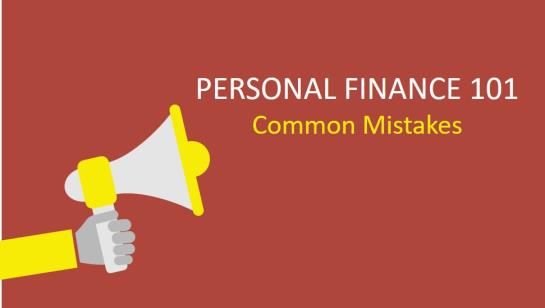
And you can also join our Telegram channel for regular updates – https://t.co/Ekz6I8pDGt (2/n)
Term Insurance is the best way to take an insurance cover & probably the only product to buy in life insurance. Make sure u disclose all the necessary information before taking the insurance. Smoking, Alcohol, any pre-existing deceases etc(3/n)
But there are variants of term insurance that you should avoid (4/n)
For a non-smoker born on the 1st Jan 1985 & policy term 39 years (till age 75), the regular premium for a 1-cr term insurance is 22,157 (inclusive of GST) but with returns of premium is 42670 (inclusive of GST). An increase of 20,513 (5/n)
(i) Without GST premium = 42670/118% = 36161
(ii) Premium returned at policy end if nothing happens = 36161*39 = 14,10,280 (7/n)
(iv) In other terms, the policy is only paying u 2.77% on the additional premium u r paying over the regular premium(8/n)
They will advertise it saying instead of paying 22,157 for 39 years (total 8,64,123), pay 48,830 for 10 years (Total 4,88,300 and save 43% premium, but, the trick here is time value of money. (9/n)
(i) If u calculate the present value of both stream of cash flows @ same rate of 6%, Present Value of regular pay (39 years) is 3,51,100 & 4 limited pay (10 years) is 3,80,957. In today’s term, u r paying 29,857 more in limited premium plans(10/n)
Which is why, in most cases you can ignore ULIP’s as well. (20/n)
- Make sure you mention all the necessary information while applying for the cover and not hide any material fact. Smoking, Alcohol, Pre-existing deceases etc. This is a major reason why most claims get rejected. (21/n)
- In case of a claim, Mediclaim will nt settle 100% of the bill amount; there may be items, which the insurance is nt covering, & the same needs 2b paid by u. Have some medical fund in place 4 such contingencies (22/n)
- Make sure you have atleast 6-12 months of your monthly expenses, including you EMIs, kept aside in an liquid fund for any unforeseen eventuality (23/n)
- Always have a goal in mind and define it in money terms, only then you can plan for it. Ex. Buying a house worth 2cr. in March 2030.
- Having a goal also brings in discipline in your investing (24/n)
- Keep you goals realistic (25/n)
-If u want to accumulate 5 cr. at retirement at 60, below is the SIP u will have 2do depending on when u start, assuming 10% returns
-Starting 10 years later will require u to do 40,000 instead of 14,500 to reach the same goal (26/n)
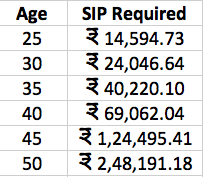
-Investing golden rule 30:30:30:10. Maximum 30% of ur income as EMI, 30% household expense, 30% Savings & 10% liquid
-Always maintain an Asset Allocation. Don’t invest most of what u have in 1 asset (27/n)
-There is no get rich over night investing strategy. You will have to give it time
-Avoid looking at your portfolio value daily
-Save more (28/n)
- If you don’t understand stock picking, stick to MFs
- Equity is a long-term asset, invest for long term
- Avoid F&O if you don’t understand it
- Investing creates wealth not trading (29/n)
-Debt mutual funds are better over FD’s if you can avoid looking at the daily NAV and give it the 3-5 years you normally give your FDs
-Higher the interest rate offered, higher is the risk
-Fixed income is risk free is a misconception (30/n)
Fixed Income investment strategies (Thread)
— Kirtan A Shah (@KirtanShahCFP) November 20, 2020
Do 're-tweet' & help us reach & benefit investors
It\u2019s a misconception that FD, RBI Bond, PPF etc have no risk. The reason we don\u2019t see the risk in them is because for us, risk ONLY means loss of capital. (1/n)
-Don’t consider the real estate u stay in as a portfolio investment, u will rarely b able 2 use it 2 convert 2 cash when u want it
-RE investments r extremely illiquid
-Rent you receive on housing RE investment is 2% vs 6-7% on commercial real estate (32/n)
-Interesting way to invest in RE - https://t.co/7doPyKWe7D (33/n)
(Thread) With Kotak launching its International REIT Fund of Fund NFO, it is worth revisiting our old thread on Real Estate Investment Trust (#REIT). The Idea is to educate readers on REIT & share our view on the Kotak #NFO
— Kirtan A Shah (@KirtanShahCFP) December 12, 2020
Do \u2018re-tweet\u2019 & help us educate more investors (1/n)
-Don’t consider the Gold jewellery at home as investment if you are not going to sell it when the price increases. Its your emergency fund
-Investments in gold should be in bars and not jewellery. Why spend on making charges? (34/n)
-Best way to invest in Gold is through Gold ETFs & SGB
-More about gold investing - https://t.co/HubxI58OMZ (35/n)
What better day to discuss Gold, isn\u2019t it?
— Kirtan A Shah (@KirtanShahCFP) November 13, 2020
Topic - Physical Gold v/s Digital Gold v/s Gold ETF v/s Sovereign Gold Bond (SGB)
(Thread) \u2013 DO RE-TWEET FOR A LARGER REACH :)
(1/n)
- Always try and utilize your 80C limits to the fullest. If you are in the 30% tax bracket, you directly save 1,50,000 * 30% = 45,000 of tax.
- 80C is no reason to invest in Insurance & 5 years bank FDs.
PPF, ELSS are much better options (36/n)
- Cash that u generate by avoiding tax gets spent & does nt help u grow ur wealth. Its better 2 pay tax & invest the rest. Calculations show that in 3 years of investing, u recover the tax u paid & the investment can then keep growing(37/n)
A thread on National Pension Scheme (NPS)
— Kirtan A Shah (@KirtanShahCFP) November 25, 2020
This is the simplest yet the most comprehensive piece around. Do \u2018re-tweet\u2019 and help us reach more investors \u263a
(1/n)
- It’s a blessing to be debt free
- Home loan, working capital loan kind of loans are okay but strictly avoid personal & credit card loans
- Don’t take loans & invest
& finally, have a will! (39/n)
Link - https://t.co/sr86RDqq0N (40/n)
- Sector Analysis
- Macro Economics
- Debt Markets
- Real Estate
- Equity Markets etc.
You can find them all in the link below. Do hit the re-tweet & help us reach a larger audience
https://t.co/UrRt87xaU7 (**END**)
Here\u2019s a compilation of Personal Finance threads I have written so far. Thank you for motivating me to do it.
— Kirtan A Shah (@KirtanShahCFP) December 13, 2020
Hit the 're-tweet' and help us educated more investors
More from Kirtan A Shah
Hit the 're-tweet' and help us educated more investors
Yes Bank’s additional Tier 1 bonds, written off. Lakshmi Villas Banks Tier 2 bonds, written off. Understand what & why of ATI and Tier 2 bonds in this thread.
https://t.co/VBmV2dwpPn (1/n)
Yes Bank\u2019s additional Tier 1 bonds, written off. Lakshmi Villas Banks Tier 2 bonds, written off. Understand what & why of ATI and Tier 2 bonds in this thread.
— Kirtan A Shah (@KirtanShahCFP) December 4, 2020
Do \u2018re-tweet\u2019 and help us benefit more investors (1/n)
'Floating Rate Funds' - A case for debt investing in the current interest rate situation
'Floating Rate Funds' - A case for debt investing in the current interest rate situation (A Thread)
— Kirtan A Shah (@KirtanShahCFP) November 27, 2020
You should not miss this if you invest in Debt.
Do \u2018re-tweet\u2019 & help us benefit more investors (1/n)
Fixed Income investment strategies
It’s a misconception that FD, RBI Bond, PPF etc have no risk. The reason we don’t see the risk in them is because for us, risk ONLY means loss of capital.
Fixed Income investment strategies (Thread)
— Kirtan A Shah (@KirtanShahCFP) November 20, 2020
Do 're-tweet' & help us reach & benefit investors
It\u2019s a misconception that FD, RBI Bond, PPF etc have no risk. The reason we don\u2019t see the risk in them is because for us, risk ONLY means loss of capital. (1/n)
Index Funds v/s ETFs
While index funds and ETF’s look similar, there are multiple differences you need to keep in mind before investing in either of them. Let me highlight the important ones
Index Funds v/s ETFs
— Kirtan A Shah (@KirtanShahCFP) November 17, 2020
Do 're-tweet' so that we can reach a larger audience :)
(Thread)
(1) While index funds and ETF\u2019s look similar, there are multiple differences you need to keep in mind before investing in either of them. Let me highlight the important ones (1/n)
More from Genericlearnings
The content in the articles has been written in a very simple language which will help you learn everything about the sector and/or the company!
Do Retweet and help your fellow tweeples learn!
Let's go 👇
Starting with Financials -
A to Z of Banking, all basics of banking explained -
https://t.co/tMfB73CHYs
Top 5 Banks and their strategies -
https://t.co/aivfUtuw9g
Large Bank - HDFC Bank - How did HDFC Bank become HDFC Bank -
Mid Sized Bank - Kotak Mahindra Bank
How did they avoid all NPAs from 1999? What makes Uday Kotak's Concalls a goldmine of information on the Banking sector? Everything explained!
We have given details from 1999! The most comprehensive article ever!
Large NBFC - Consumer Durables Play - Bajaj Finance
From its origins to how it gives 0% EMI to how it earns money from manufacturers - everything explained!
More - Origins, Products, Loan Book, Cross-Selling, Risk management, Concalls of 8 Years,
Gold NBFC - Manappuram Finance
Origins (with fun facts)
Products, 10Y Financials, Business model and how do they make money, How does a gold loan work, Operational efficiency, peer comparison, mgmt commentary, why we don't like the stock, and much
You May Also Like
If everyone was holding bitcoin on the old x86 in their parents basement, we would be finding a price bottom. The problem is the risk is all pooled at a few brokerages and a network of rotten exchanges with counter party risk that makes AIG circa 2008 look like a good credit.
— Greg Wester (@gwestr) November 25, 2018
The benign product is sovereign programmable money, which is historically a niche interest of folks with a relatively clustered set of beliefs about the state, the literary merit of Snow Crash, and the utility of gold to the modern economy.
This product has narrow appeal and, accordingly, is worth about as much as everything else on a 486 sitting in someone's basement is worth.
The other product is investment scams, which have approximately the best product market fit of anything produced by humans. In no age, in no country, in no city, at no level of sophistication do people consistently say "Actually I would prefer not to get money for nothing."
This product needs the exchanges like they need oxygen, because the value of it is directly tied to having payment rails to move real currency into the ecosystem and some jurisdictional and regulatory legerdemain to stay one step ahead of the banhammer.
1 - open trading view in your browser and select stock scanner in left corner down side .
2 - touch the percentage% gain change ( and u can see higest gainer of today)
Making thread \U0001f9f5 on trading view scanner by which you can select intraday and btst stocks .
— Vikrant (@Trading0secrets) October 22, 2021
In just few hours (Without any watchlist)
Some manual efforts u have to put on it.
Soon going to share the process with u whenever it will be ready .
"How's the josh?"guys \U0001f57a\U0001f3b7\U0001f483
3. Then, start with 6% gainer to 20% gainer and look charts of everyone in daily Timeframe . (For fno selection u can choose 1% to 4% )
4. Then manually select the stocks which are going to give all time high BO or 52 high BO or already given.
5. U can also select those stocks which are going to give range breakout or already given range BO
6 . If in 15 min chart📊 any stock sustaing near BO zone or after BO then select it on your watchlist
7 . Now next day if any stock show momentum u can take trade in it with RM
This looks very easy & simple but,
U will amazed to see it's result if you follow proper risk management.
I did 4x my capital by trading in only momentum stocks.
I will keep sharing such learning thread 🧵 for you 🙏💞🙏
Keep learning / keep sharing 🙏
@AdityaTodmal


